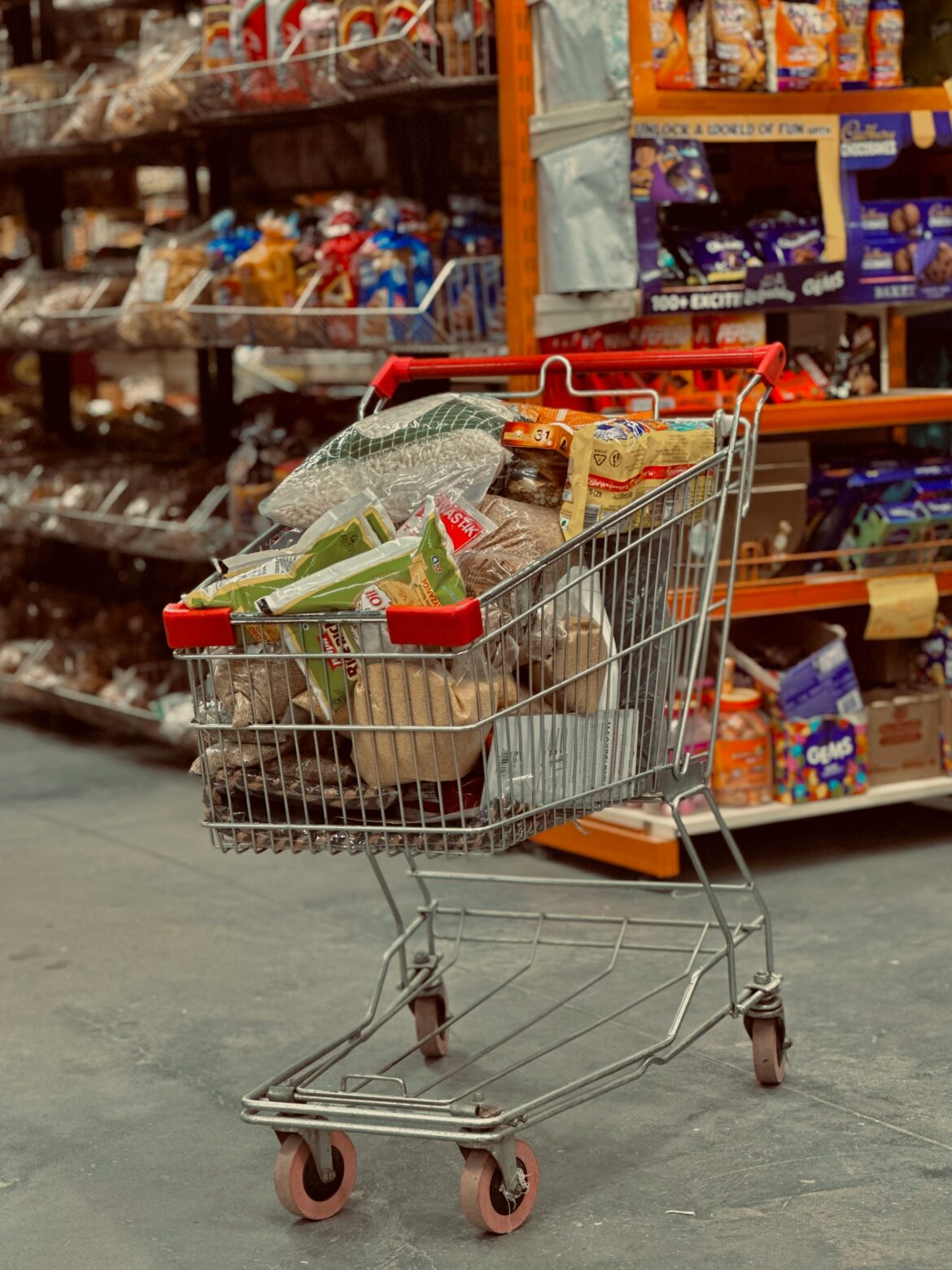As the cost-of-living crisis continues to bite across Britain, UK households are once again facing rising food prices at the tills. From supermarket basics to everyday essentials, July 2025 is shaping up to be another tight month for families already living close to the edge.
In this report, The Breadline Bulletin breaks down what’s going up, why it’s happening, and — most importantly — what you can do to soften the impact on your weekly shop.
📊 What’s Getting More Expensive in July?
According to the latest data from the Office for National Statistics (ONS), food and non-alcoholic beverage inflation stood at 6.8% year-on-year in June 2025, and early figures suggest July may see a slight uptick.
Here are some key categories where prices are rising fastest:
| Category | % Increase (Year-on-Year) | Notes |
|---|---|---|
| Bread & Cereals | +8.2% | White bread loaves hit hardest |
| Meat (especially pork) | +7.4% | Bacon and sausages rising |
| Vegetables | +9.1% | Root crops affected by bad weather |
| Dairy (milk, cheese) | +5.8% | Wholesale milk costs up again |
| Coffee & Tea | +10.5% | Global demand + shipping fees |
💡 Supermarket observations:
Tesco, Asda, and Morrisons have increased prices across staples like butter, pasta, and rice. Meanwhile, budget stores like Aldi and Lidl are also adjusting prices upward, particularly on imported items.
🌍 Why Are Prices Rising Again?
Several factors are contributing to this ongoing squeeze:
🔹 1. Poor Weather Conditions
Unseasonal rain and cold spells in April and May delayed crop harvests across the UK. The British Growers Association warned of “notable reductions” in UK-grown veg like carrots, leeks, and broccoli.
🔹 2. Import Costs & Brexit Red Tape
New post-Brexit border checks introduced earlier this year continue to slow the flow of goods, especially perishable items. This has pushed up prices for fruits and salad items imported from the EU.
🔹 3. Global Commodity Prices
The cost of essentials like wheat, soy, and cooking oil remains volatile due to geopolitical tensions and shipping route disruptions. Many of these global pressures trickle down directly to UK supermarkets.
🔹 4. Labour & Transport Costs
Wage increases across farming and logistics sectors have added additional strain. Fuel prices, though down from their 2022 peak, are still high enough to affect transport costs — particularly for refrigerated goods.
🛒 What Can Shoppers Expect in Supermarkets?
If you’re heading into Tesco, Sainsbury’s, or Aldi this week, here’s what you might notice:
- 🥫 Shrinkflation: Same price, smaller packet. Watch for cereal boxes and biscuit packs.
- 🧀 Dairy Swaps: Premium cheddar and butter are being replaced on shelves by own-brand cheaper alternatives.
- 🥩 Meat Mix: Mince meat packs include more fat and filler to cut retail prices.
- 🥖 Bakery Inflation: Fresh bread and wraps are now 5–10p higher in most major supermarkets.
Supermarkets are offering discounts on multi-buys and clubcard promotions, but these often require upfront spending, which can hurt households already stretching every pound.
💡 Budgeting Tips to Beat the Basket Price Rise
✅ 1. Shop at Night or Early Morning
Many supermarkets reduce prices dramatically on perishables after 6 PM or before 9 AM. Yellow sticker deals can cut meat, bread, and ready meals by 50% or more.
✅ 2. Use Budget-Friendly Recipe Plans
Sites like BBC Good Food, MOB Kitchen, and Jack Monroe’s Cooking on a Bootstrap offer low-cost meal ideas that are both filling and affordable.
✅ 3. Embrace Frozen & Tinned Goods
Frozen veg and tinned pulses remain cheaper and have longer shelf lives — ideal for stretching the weekly budget.
✅ 4. Use Loyalty Cards (Wisely)
Tesco Clubcard, Nectar, Lidl Plus, and Asda Rewards all offer price cuts — but only on select items. Plan your shop around offers you actually need.
✅ 5. Try Discount Stores or Food Banks
Consider local surplus food schemes like Fareshare or community pantries. Many are open to anyone, not just those on benefits.
🇬🇧 Final Word: No Signs of Relief Yet
For now, there’s no strong signal that food inflation will reverse in the coming months. With energy bills still high and mortgage rates squeezing renters and homeowners alike, food affordability remains a top concern for millions.
At The Breadline Bulletin, we’ll continue to track food prices, supermarket shifts, and cost-of-living solutions every week — helping you stay informed, prepared, and empowered.
📌 Disclaimer
This article is for general information purposes only and reflects average UK pricing trends as of July 2025. Prices may vary by location and supermarket. The Breadline Bulletin is not affiliated with any brand or government body mentioned.
🧠 Meta Details
Meta Title:
UK Food Prices Rise Again in July 2025 – What Shoppers Should Know
Meta Description:
Grocery prices are up again in the UK. Discover what’s getting more expensive, why it’s happening, and how to budget better in July 2025 with The Breadline Bulletin.



